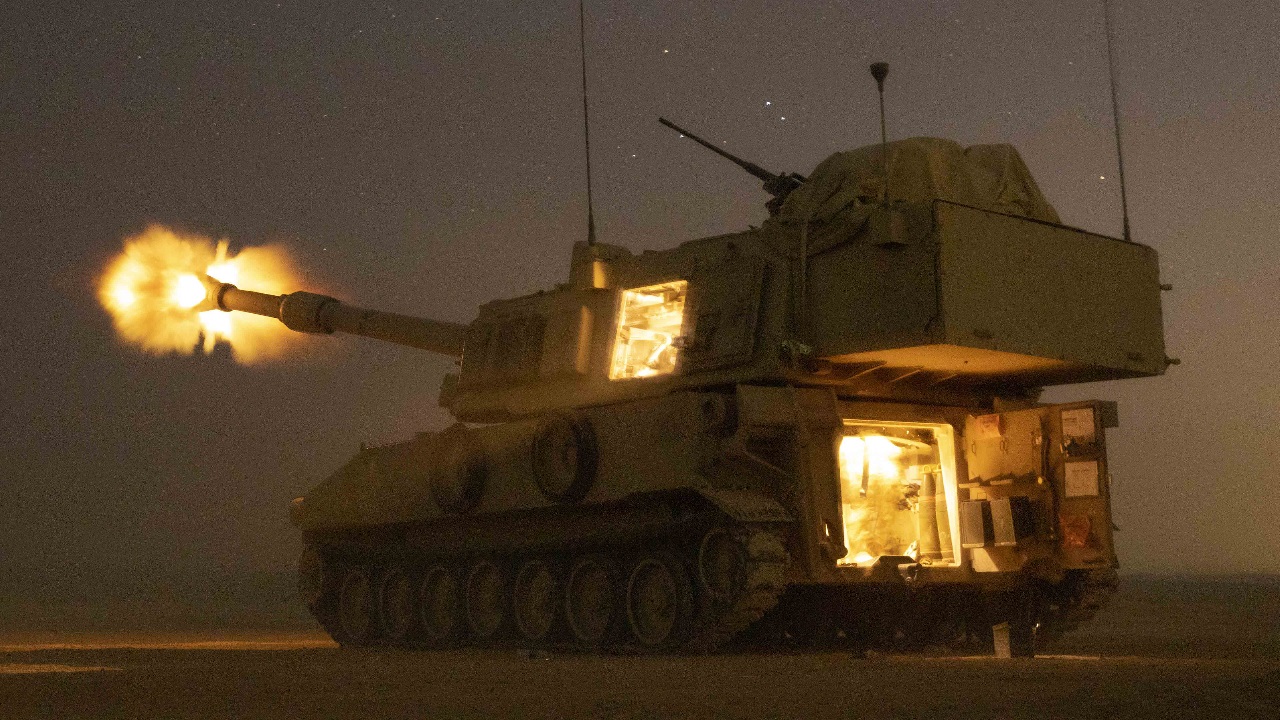Last year, Russia launched a bloody war of conquest against its non-threatening neighbor Ukraine. To Moscow’s astonishment, Ukraine defended itself with skill, courage, and — above all — unity.
Moscow is now trying again, doubtless with better planning and after mobilizing its available young men (those who could not escape to other countries) and convicts. This Russian offensive will greatly outnumber Ukraine in soldiers and fire power in what is an artillery and infantry war. Ukraine does not lack for valor and ingenuity, but its munitions are running low.
I was recently in Ukraine for more than a week with a delegation of the American Foreign Policy Council where we met with Ukrainians from government, political factions, the military, civil society and the economy. The nation is resilient and even more motivated than a year ago. Ukraine is fighting and will continue to do so. That is not in doubt at all.
However, this is a high-intensity war, the most violent on European soil since the Second World War. The cost thus far in blood on the battlefield — Ukrainian and Russian — is horrendous, and will get worse. The cost in Ukrainian lives from intentional targeting of residential areas and civilian infrastructure is appalling and grounds for war crimes trials. Putin and his associates may be indifferent to Russian losses, but Ukraine is a representative democracy answerable to its families. The leadership in Kyiv has a duty to limit the bloodshed among its people when it can. This calls for the classic “American way of war,” to spill money rather than blood. To this end, Kyiv needs more American money and weapons.
Let’s be clear, European governments and the European Union are providing a lot more assistance — financial, humanitarian, and military — than most Americans realize. The impression on our television that we are doing it all in terms of supporting Ukraine is simply wrong. Ukraine will receive hundreds of European battle tanks before it may get any on the ground from us. Several million European households are voluntarily sheltering Ukrainians who had to flee Putin’s war. As Ukraine seeks to join the European Union, it is just and proper that Europe carry this burden.
However, the United States stands alone in military technology and industry. The U.S.-supplied anti-armor and anti-air weapons wielded by Ukrainian soldiers in the early months of the fighting stopped Russian columns, recovered much Ukrainian territory, and taught Russian generals (although perhaps not Vladimir Putin) to respect Ukraine and its people. Our military assistance during the past year outweighs all other sources, and is essential for the combined-arms capacity to defeat Russian quantity with NATO quality.
Today, a new Russian offensive looms. What the immediate objective may be is unclear, but the purpose of this war is not. Putin seeks to remove Ukraine as a nation and state from the map of the world, to delete it from the member list of the United Nations, and to subordinate its people, language and culture entirely within his concept of “Novorossiya.” If you do not believe it, go to Ukraine and ask almost anyone. They know.
In the past, Poland was removed from the map more than once by its Great Power neighbors, so Bismarck could describe Poland as a “sandbar country” shifted and finally submerged by the waters of history. Bismarck and Hitler would be furious to learn that Poland today not only survives but thrives and stands in the forefront of countries rendering support to Ukraine, despite the deep historical differences between the two.
Today, it is Ukraine which fights to survive. A year ago, the response by the United States was swift and united; it amounted to “all aid short of war.” Ukraine has not asked for any American boots on the ground or blood to be shed. Indeed, Ukrainians feel honor bound to defend their own country themselves. Modern war, however, is not only about blood and valor. Russia brings to this contest an immense stockpile of guns and tanks and aircraft and munitions beyond description. Moscow is now importing weapons from Iran and North Korea, but still has munitions factories across eleven time zones to keep its troops equipped. Ukraine does not and can only fight on with weapons from the West. That is all it asks.
There is more at stake for our country than geopolitics and budgets. Given that Ukrainians will do all the fighting, bleeding and dying, for Americans there is also a question of honor. This is not like Afghanistan or Iraq where we squandered trillions for no purpose. This is a fight with a very real purpose and one we cannot avoid or evade. Will we look back on our decision today with pride or shame? We must choose.
Author Expertise and Experience
E. Wayne Merry is Senior Fellow for Europe and Eurasia at the American Foreign Policy Council in Washington, DC. He is widely published and a frequent speaker on topics relating to Russia, Central Asia and the Caucasus, the Balkans, European security, and trans-Atlantic relations. In twenty-six years in the United States Foreign Service, he worked as a diplomat and political analyst specializing in Soviet and post-Soviet political issues, including six years at the American Embassy in Moscow, where he was in charge of political analysis on the breakup of the Soviet Union and the early years of post-Soviet Russia. He also served at the embassies in Tunis, East Berlin, and Athens and at the US Mission to the United Nations in New York.

